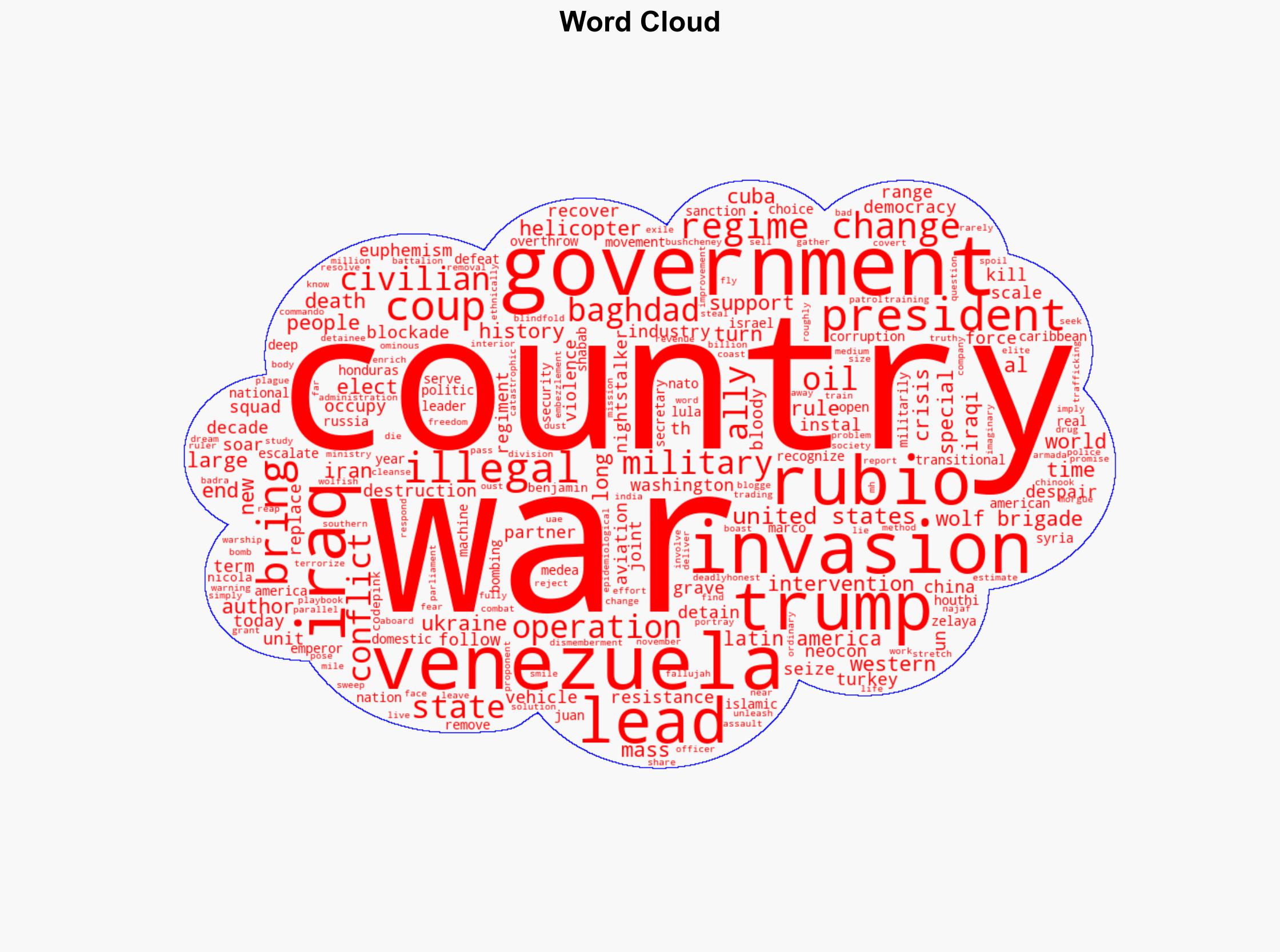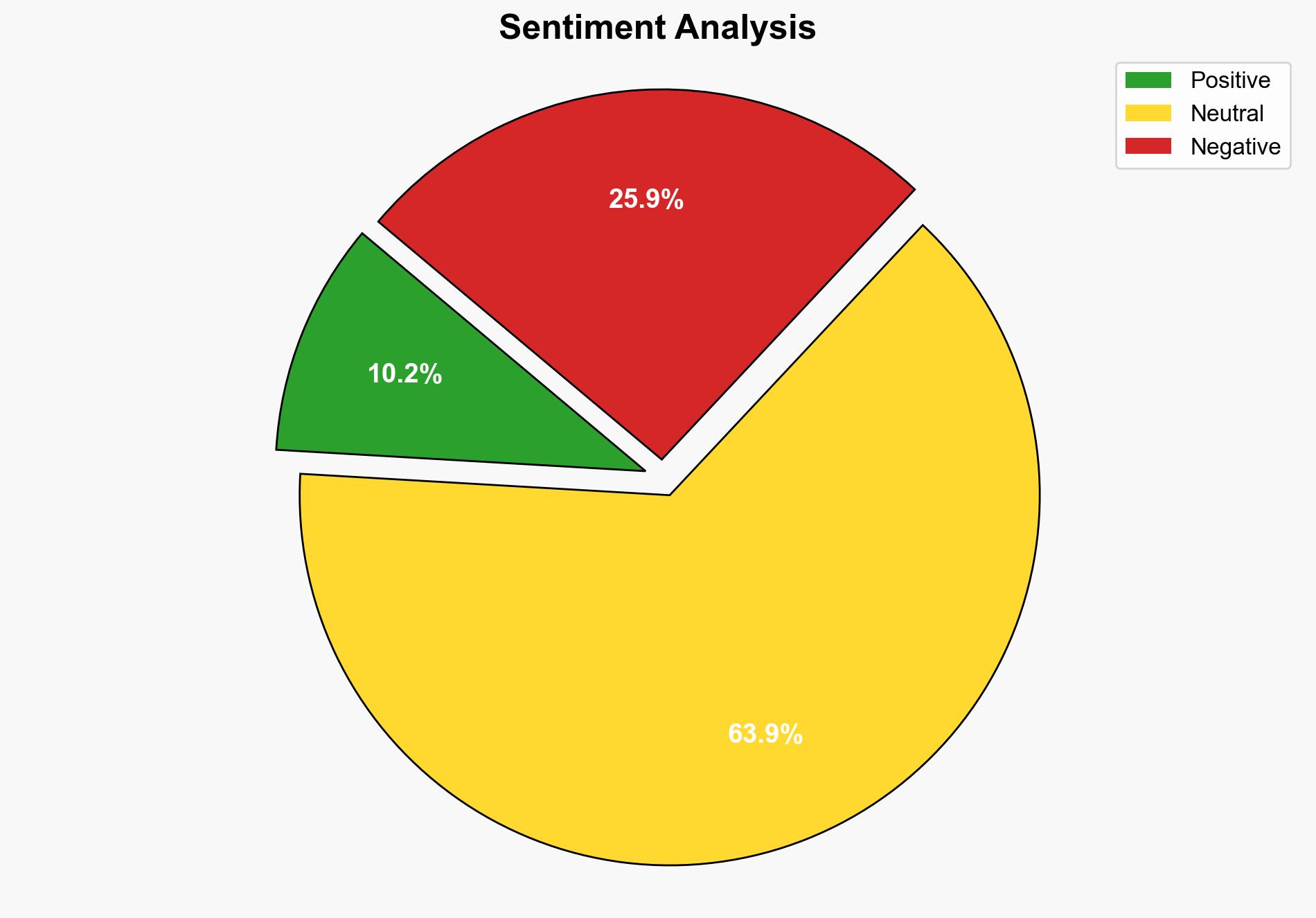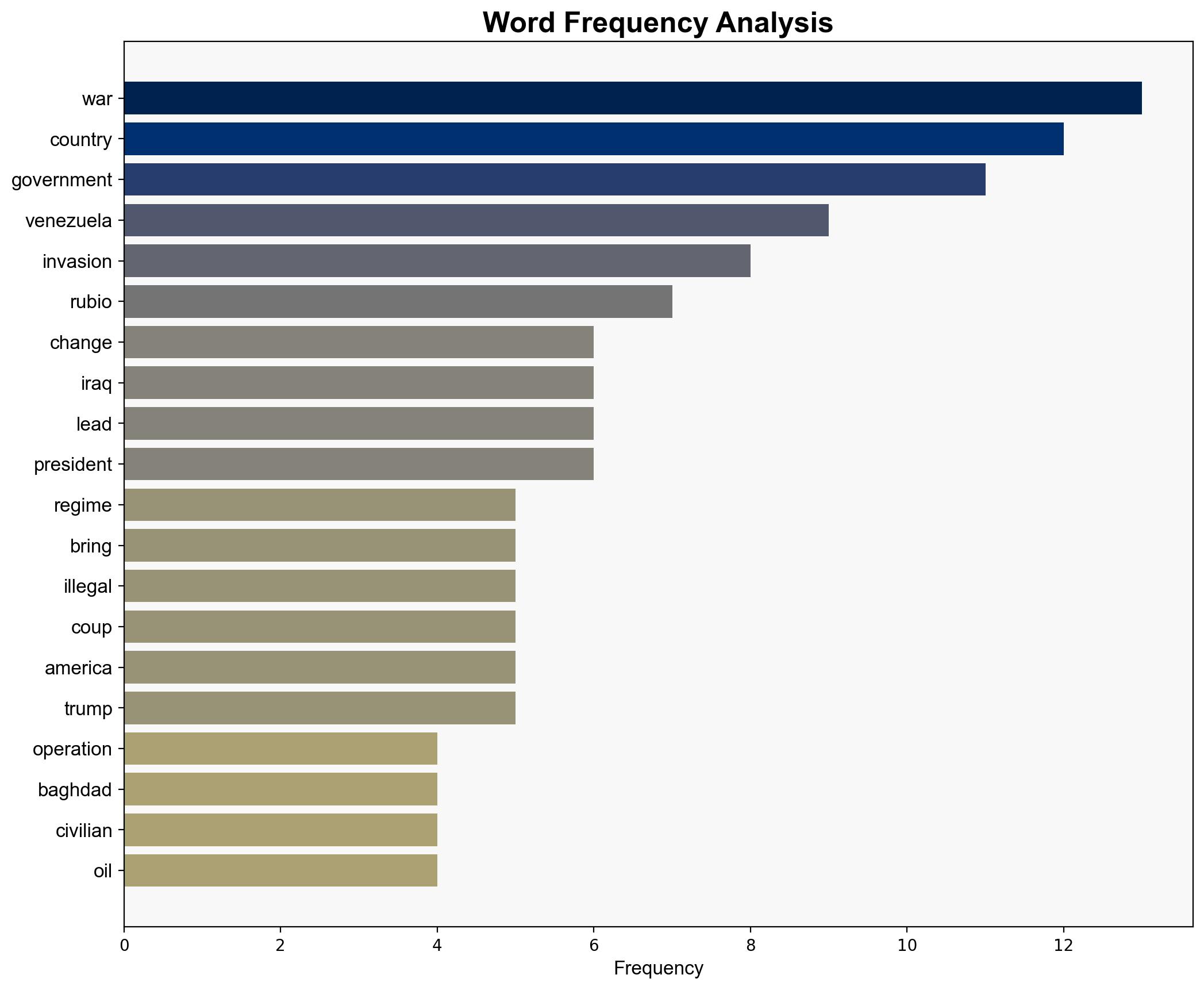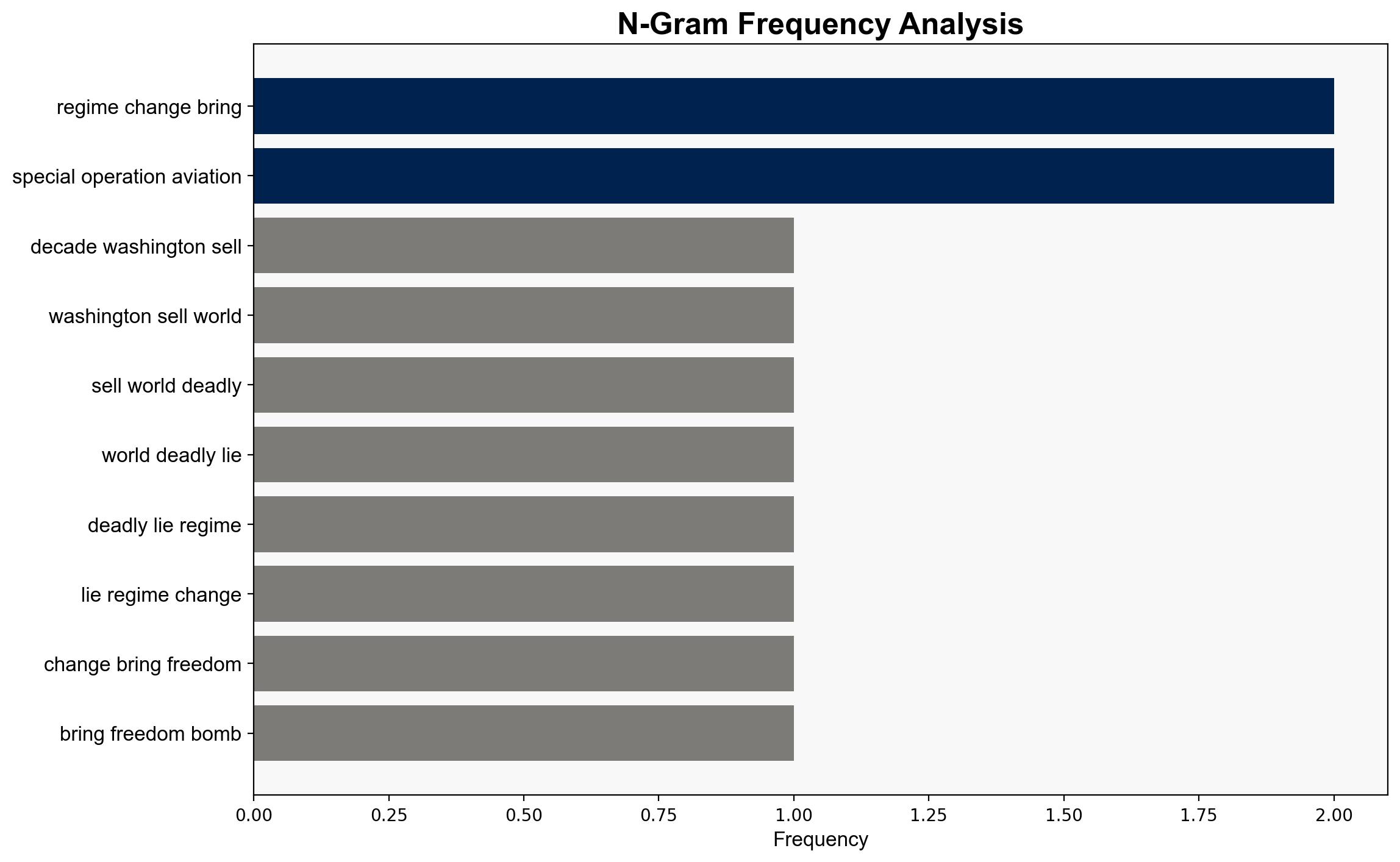Regime Change in Venezuela Is a Euphemism for US-Inflicted Carnage and Chaos – Antiwar.com
Published on: 2025-11-12
AI-powered OSINT brief from verified open sources. Automated NLP signal extraction with human verification. See our Methodology and Why WorldWideWatchers.
Intelligence Report: Regime Change in Venezuela Is a Euphemism for US-Inflicted Carnage and Chaos – Antiwar.com
1. BLUF (Bottom Line Up Front)
With a moderate confidence level, the most supported hypothesis is that U.S. intervention in Venezuela, under the guise of regime change, could lead to significant destabilization and humanitarian crises, similar to past interventions in other nations. Recommended action includes diplomatic engagement and multilateral cooperation to prevent escalation and promote stability.
2. Competing Hypotheses
Hypothesis 1: U.S. intervention in Venezuela will lead to chaos and destruction, mirroring past interventions in Iraq, Libya, and Afghanistan, resulting in long-term instability and humanitarian crises.
Hypothesis 2: U.S. intervention in Venezuela could successfully lead to a democratic transition and improved governance, similar to the outcomes in Eastern Europe post-Cold War.
Hypothesis 1 is more likely due to historical precedents of U.S. interventions leading to destabilization, as evidenced by the situations in Iraq and Libya. The complexity of Venezuela’s political and social landscape further supports this hypothesis.
3. Key Assumptions and Red Flags
Assumptions: The analysis assumes that U.S. intervention will follow historical patterns and that internal Venezuelan dynamics are similar to those in past intervention cases.
Red Flags: Potential bias in the source material, which may exaggerate negative outcomes of U.S. interventions. The narrative may overlook internal factors contributing to Venezuela’s situation.
Deception Indicators: The portrayal of U.S. actions as uniformly negative may indicate a biased perspective, potentially omitting any positive outcomes or intentions.
4. Implications and Strategic Risks
Potential implications include a humanitarian crisis, increased refugee flows, and regional instability. Escalation scenarios could involve economic sanctions leading to further economic collapse, cyber operations targeting Venezuelan infrastructure, and misinformation campaigns exacerbating tensions.
5. Recommendations and Outlook
- Engage in diplomatic dialogue with regional partners to address the crisis collectively and prevent unilateral actions that could lead to escalation.
- Promote humanitarian aid and support for Venezuelan civilians to mitigate immediate suffering.
- Best-case scenario: A peaceful transition to a stable and democratic government through multilateral efforts.
- Worst-case scenario: Prolonged conflict and humanitarian disaster, with regional spillover effects.
- Most-likely scenario: Continued instability with intermittent international interventions and sanctions.
6. Key Individuals and Entities
Juan Guaidó, Nicolás Maduro, U.S. Department of State, Venezuelan National Assembly
7. Thematic Tags
Regional Focus: Latin America, U.S. Foreign Policy, Regime Change, Humanitarian Crisis
Structured Analytic Techniques Applied
- Causal Layered Analysis (CLA): Analyze events across surface happenings, systems, worldviews, and myths.
- Cross-Impact Simulation: Model ripple effects across neighboring states, conflicts, or economic dependencies.
- Scenario Generation: Explore divergent futures under varying assumptions to identify plausible paths.
Explore more:
Regional Focus Briefs ·
Daily Summary ·
Methodology





